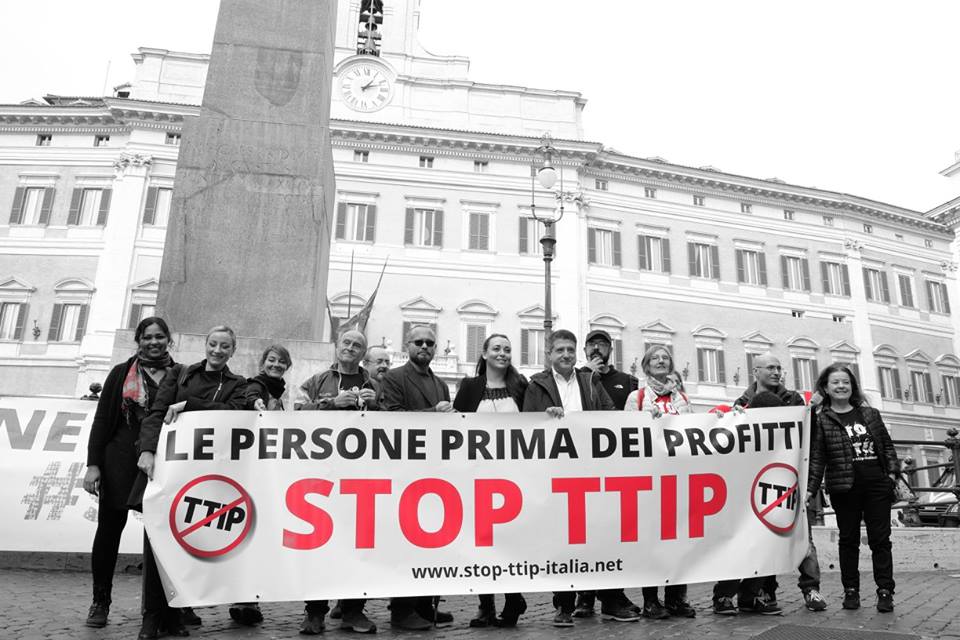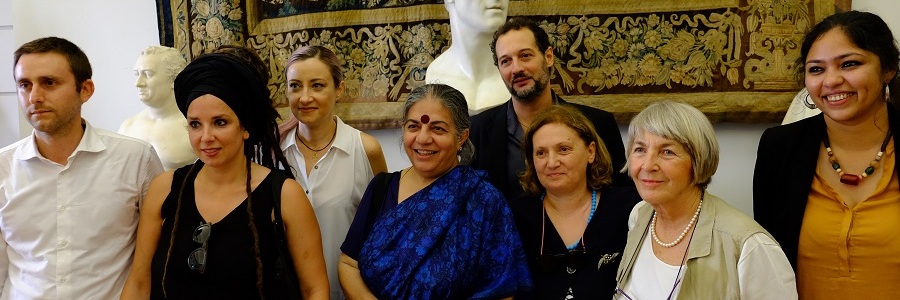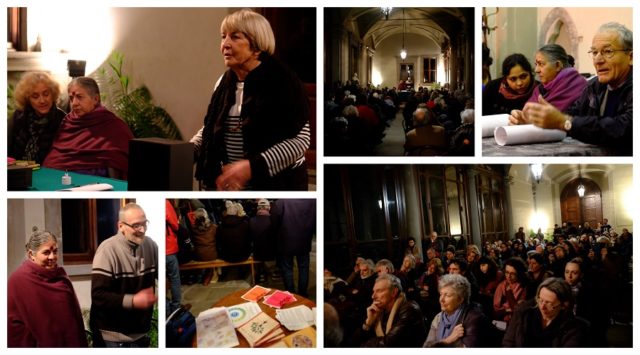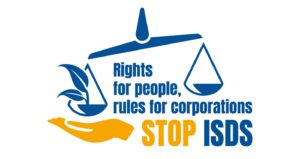Large corporations define freedom as “free trade”, which is corporate globalisation. But “Free Trade” is not about freedom. Today, after 20 years, we can see the impact of globalization, which has progressively turned common goods, including seeds and food, into commodities in the grips of of market price fluctuations. Consequences that systematically fall on people and farmers’ lives and on the environment.
When we, as people, use freedom we refer to people’s freedom to live, earn livelihood, to have access to vital resources like food, water, seed, land, health, education, knowledge, work, creativity, communication, etc.
“Free trade” rules are written by corporations to enlarge their freedom to commodify and privatise the last inch of land, the last drop of water, the last seed, the last serving of food, the last byte of information, the last bit of data, knowledge and imagination. In this way they take control of natural resources, food and agriculture systems and invade national markets of imported products that destroy the fabric of local economies.
In 1999, movements gathered in Seattle were able to stop the plans of the World Trade Organization aimed at further deregulating international trade to the advantage of rich countries and large corporations.
Since then corporations have continued to implement new tricks and strategies, such as larger and larger monopolies created by corporate mega-mergers and free trade agreements, like CETA and TTIP. The new generation free trade treaties have an additional dangerous instrument, called ISDS or ICS, for which companies have the right to sue national and local to private courts in case they believe that particular laws or rules are preventing them to make profit. Most of the times these are laws and rules in defense of people’s sovereignty and health and the environment.
During the last decades, this economic system has allowed a few number of billionaires and the corporations that they control to dismantle the dignity of work, to obstruct democratic processes, to interfere in those national laws in defense of the rights to health and a healthy environment.
Among the rules “written by corporations” and imposed by WTO are the rules related to intellectual property rights, which have allowed patents on life and enormously favored the expansion of chemical and seed industries in the field of genetic engineering, producing an exponential increase in these markets and in the area cultivated under monoculture at a global level.
The consequences of the industrial model of agriculture are known. It is a system that is destroying biodiversity, soil, water resources, while contributing to only a small part of the food produced globally.
It’s still small farmers who provide for most of the global food needs, in spite of not being protected by the current system, which prefers to favour the distribution of low cost and nutritionally empty agricultural and food products, often loaded with a wide range of dangerous chemicals.
There are agreements which basically allow the dumping of poor quality food or heavily contaminated by hazardous chemical substances on any country, to the point of subverting the balance of local supply chains and of national and local economies. These rules are dictated by a ‘Poison Cartel’ of giant transnational agribusiness corporations that have brought us GMOs and pesticides, disease and malnutrition, and the subversion of the democratic principles of our civilization. But we will not be forced to be dominated by these poisoners.
The work we must do as civil society is to reclaim our right to food and economic sovereignty by promoting and creating local and ecological agricultural, food networks and systems. At an institutional and political level it is necessary to set ethical and ecological rules that protect the common good against corporate monopolies and free trade treaties and to encourage cooperation among people, who democratically participate in the shape they want to give to the future of our economies and our production and consumption systems.
After the successful mobilization for the Monsanto Tribunal and People’s Assembly in The Hague in October 2016, co-organised by Navdanya International, along with multiple CSOs from all over the world, in The Hague, the global mobilization continued throughout 2017, and Navdanya International organised and co-organised multiple actions with movements across the world.

Over the last 2 years, Navdanya International had joined the widespread opposition against Free Trade Agreements. Particularly, Navdanya worked with the Italian coalition led by Stop TTIP Italia, to put pressure on the Italian government not to ratify CETA (Comprehensive Economic and Trade Agreement between Europe and Canada).

The Conference “Poisons at the Door: Food, health and environmental risks in the new global market”, held in Rome in July 2017, and organized by Navdanya International, in collaboration with Esc Communications, at the invitation of the Council for the Environment of the Municipality of Rome, brought together diverse groups focused on issues of free trade agreements, social injustice, climate change, food, health and agriculture. The core themes of the event were the impact of Free Trade Agreements, such as CETA, on our food and production systems, with a focus on how these tool are used by the agrichemical industry to expand their pesticides market and how this has very negative effects on health and environment.

A series of conferences and meeting was organised by Navdanya International in collaboration with local partners in Florence, Italy, in January 2018. Particular focus was given to the commitment we must make to implement ecological solutions, such as caring for the soil, seeds and biodiversity as the essential basis for solving most of the crises we are facing, and the schism between politics, which should be in the interests of citizens, and the present economic unsustainable and exploitative model, as well as on the main threats to our democracy and freedom, such as Free Trade Agreements and Corporate Mergers and how these will affect the future of agriculture and food. Among the issues discussed, specific focus was given to the impact of globalization, which has progressively reduced the commons, including seeds and food, into commodities at the mercy of market fluctuations.
In continuation of the ongoing collaboration, in March 2018, Navdanya International joined the campaign which targeted candidates of the Italian elections asking them to declare they would oppose CETA once/if elected. As an outcome of this collaboration with Stop TTIP/Stop Ceta Italy, more than 5500 candidates of the Italian elections declared they would oppose CETA once/if elected.

On January 22, 2019, at the start of the 2019 World Economic Forum in Davos, Navdanya International joined 150+ European organisations, trade unions and social movements to launch a new trade and corporate accountability campaign called “Rights for People and Rules for Corporations – Stop ISDS”.
